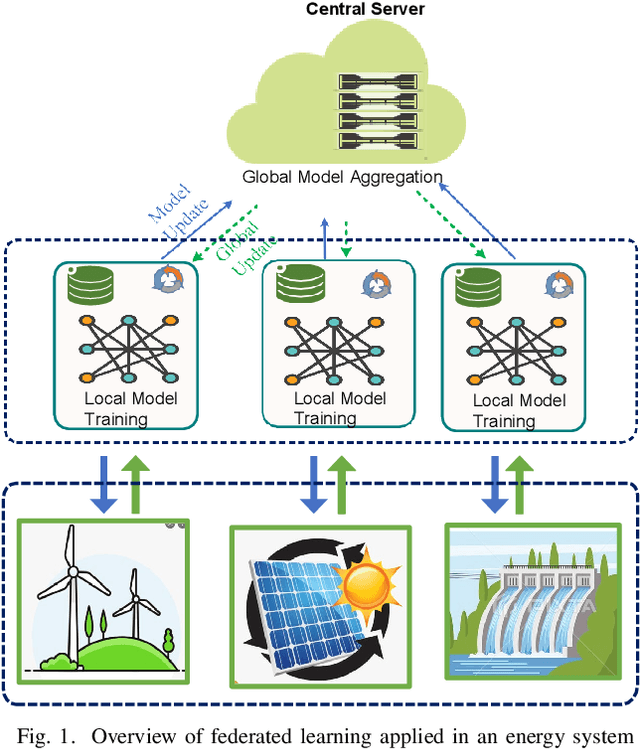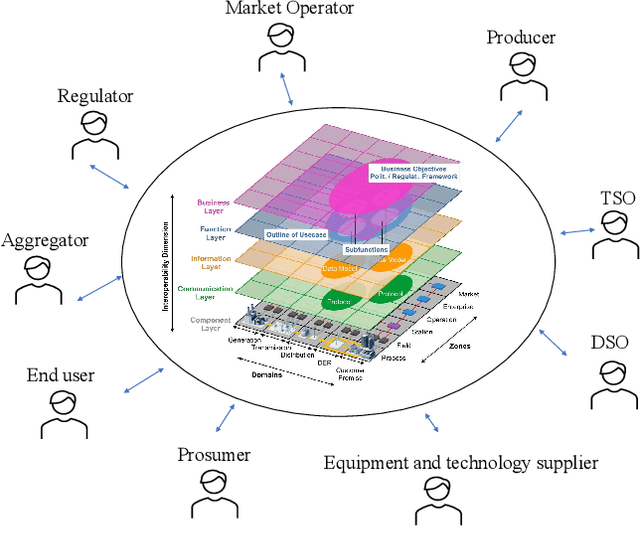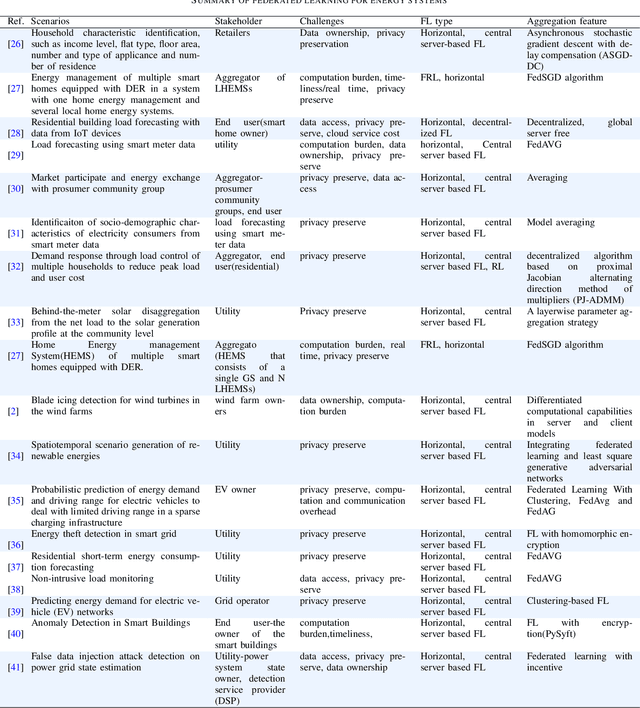Chendan Li
A Review of Federated Learning in Energy Systems
Aug 20, 2022


Abstract:With increasing concerns for data privacy and ownership, recent years have witnessed a paradigm shift in machine learning (ML). An emerging paradigm, federated learning (FL), has gained great attention and has become a novel design for machine learning implementations. FL enables the ML model training at data silos under the coordination of a central server, eliminating communication overhead and without sharing raw data. In this paper, we conduct a review of the FL paradigm and, in particular, compare the types, the network structures, and the global model aggregation methods. Then, we conducted a comprehensive review of FL applications in the energy domain (refer to the smart grid in this paper). We provide a thematic classification of FL to address a variety of energy-related problems, including demand response, identification, prediction, and federated optimizations. We describe the taxonomy in detail and conclude with a discussion of various aspects, including challenges, opportunities, and limitations in its energy informatics applications, such as energy system modeling and design, privacy, and evolution.
 Add to Chrome
Add to Chrome Add to Firefox
Add to Firefox Add to Edge
Add to Edge